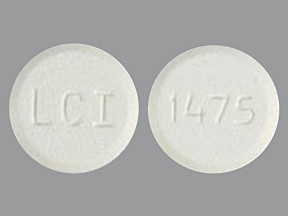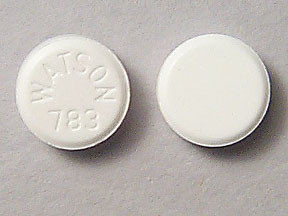DIETHYLPROPION - ORAL
PHONETIC PRONUNCIATION: (dye-ETH-il-PROE-pee-on)
COMMON BRAND NAME(S): Tenuate
GENERIC NAME(S): diethylpropion HCl
Uses
USES: Diethylpropion is used along with a doctor-approved, reduced-calorie diet, exercise, and behavior change program to help you lose weight. It is used in people who are significantly overweight (obese) and have not been able to lose enough weight with diet and exercise alone. Losing weight and keeping it off can reduce the many health risks that come with obesity, including heart disease, diabetes, high blood pressure, and a shorter life. It is not known how this medication helps people to lose weight. It may work by decreasing your appetite, increasing the amount of energy used by your body, or by affecting certain parts of the brain. This medication is an appetite suppressant and belongs to a class of drugs called sympathomimetic amines.
How to use DIETHYLPROPION - ORAL
HOW TO USE: Take the immediate-release form of this medication by mouth, usually 3 times a day 1 hour before meals or as directed by your doctor. If late-night eating is a problem, your doctor may direct you to take another dose in the evening. Taking this medication late in the day may cause trouble sleeping (insomnia). The extended-release form of diethylpropion is usually taken once a day in the mid-morning. Do not crush or chew extended-release tablets. Doing so can release all of the drug at once, increasing the risk of side effects. Also, do not split the tablets unless they have a score line and your doctor or pharmacist tells you to do so. Swallow the whole or split tablet without crushing or chewing. The dosage is based on your medical condition and response to therapy. Your doctor will adjust the dose to find the best dose for you. Use this medication regularly and exactly as prescribed in order to get the most benefit from it. To help you remember, take it at the same time(s) each day. Diethylpropion is usually taken for only a few weeks at a time. It should not be taken with other appetite suppressants (see also Drug Interaction section). The possibility of serious side effects increases with longer use of this medication and use of this drug along with certain other diet drugs. This medication may cause withdrawal reactions, especially if it has been used regularly for a long time or in high doses. In such cases, withdrawal symptoms (such as depression, severe tiredness) may occur if you suddenly stop using this medication. To prevent withdrawal reactions, your doctor may reduce your dose gradually. Consult your doctor or pharmacist for more details, and report any withdrawal reactions right away. Though it helps many people, this medication may sometimes cause addiction. This risk may be higher if you have a substance use disorder (such as overuse of or addiction to drugs/alcohol). Do not increase your dose, take it more often, or use it for a longer time than prescribed. Properly stop the medication when so directed. You should see some weight loss soon after you start this medication. Tell your doctor if you do not see at least 4 pounds of weight loss within 4 weeks of starting this medication. This medication may stop working well after you have been taking it for a while. Talk with your doctor if this medication stops working well. Do not increase the dose unless directed by your doctor. Your doctor may direct you to stop taking this medication.
Side Effects
Precautions
Interactions
Overdose
Images
Reviews
Faq for DIETHYLPROPION - ORAL
Diethylpropion is an appetite suppressant that is used for weight loss. It belongs to a class of drugs known as sympathomimetic amines.
Diethylpropion works by stimulating the release of certain chemicals in the brain that control appetite. It helps in reducing hunger and makes it easier to stick to a low-calorie diet.
Common side effects of diethylpropion may include dizziness, dry mouth, insomnia, nervousness, headache, increased heart rate, and elevated blood pressure.
Diethylpropion can be safe to use when prescribed by a doctor and taken as directed. However, it may not be suitable for everyone, especially those with a history of heart disease, high blood pressure, or certain mental health disorders.
Diethylpropion is typically prescribed for short-term use, usually for a few weeks. Prolonged use of diethylpropion is not recommended because it may lead to dependence and other health risks.
Yes, diethylpropion can interact with certain medications, including MAO inhibitors, bupropion, and other weight loss drugs. It is important to inform your doctor about all medications you are taking to avoid potential interactions.
Diethylpropion is not recommended for use during pregnancy or breastfeeding. It may pose risks to the developing fetus or nursing infant. Consult with your doctor for safer alternatives if you are pregnant or breastfeeding.
If you miss a dose of diethylpropion, take it as soon as you remember. However, if it is close to the time for your next dose, skip the missed dose and resume your regular dosing schedule. Do not double the dose to catch up.
Diethylpropion is not approved for use in children below the age of 16. The safety and effectiveness of diethylpropion in pediatric patients have not been established.
Disclaimer
IMPORTANT: HOW TO USE THIS INFORMATION: This is a summary and does NOT have all possible information about this product. This information does not assure that this product is safe, effective, or appropriate for you. This information is not individual medical advice and does not substitute for the advice of your health care professional. Always ask your health care professional for complete information about this product and your specific health needs.


No Reviews Yet